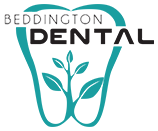
Full mouth restoration involves a dental treatment where all the teeth of a patient are replaced or repaired. The treatment often involves more than two dental procedures to cosmetically and surgically repair and restore a patient’s mouth to good shape. The treatment is offered to patients who have suffered traumatic injuries or have suffered critical oral conditions that have cost them the health of their teeth.
Patients who require full-mouth reconstruction in Calgary have different causes for needing the treatment. Some have multiple missing teeth, while others lack any teeth. In other situations, a patient might have very weak teeth due to plaque and tartar buildup that severely damaged the teeth structure. Whichever the reason, only a dentist can properly prescribe this treatment for your condition. You could be surprised that you may not need all-on-4 dental implants after all.
What Qualifies You for Full-Mouth Restoration?
- Multiple missing teeth – the number has to be significantly higher than missing two teeth. A great example is patients who have missing teeth on the entire upper or lower jaw.
- Extreme tooth decay – this one also applies to multiple teeth. If you have several teeth that have extremely succumbed to decay, you may qualify for this treatment.
- Badly worn teeth – even though teeth are meant to last a lifetime, they do not always last that long. Some patients have badly worn teeth thanks to bruxism that involves excessive teeth clenching and grinding.
- Cracked or broken teeth – when the cracking and breaking happens to multiple teeth, a patient can merit full-mouth restoration.
- Other medical reasons – some patients are born with certain medical conditions that can result in a poor dental formula, shape of teeth, alignment, among other oral issues. Some of the conditions include Ameliogenesis, Ectodermal Dysplasia, or Dentinogenesis Imperfecta.
What are The Different Treatment Procedures in Full-Mouth Restoration?
Full-mouth restoration cannot be accomplished in one procedure. A thorough examination and diagnosis by a dentist will help narrow down to which procedures can bring out the best results in the unique patient cases. It differs from one person to another, based on the needs of the teeth, as well as their dental structure. A dentist will recommend two or more of some of the following procedures:
- Root canal therapy – where tooth decaying has gone overboard, losing a tooth is better than keeping it. Root canal therapy involves the removal of such teeth from the root.
- Temporomandibular Joint (TMJ) treatment – if the patient has had issues with the alignment of the upper and lower jaw, it could signal a problem with TMJ. Disorders of this joint can cause swelling, pain, uneven bites, chewing problems, eating problems, to mention a few other conditions.
- Soft tissue surgery – performed mostly to correct issues with the gum tissue. It can be reduced to allow more enamel to show, or be increased to improve the overall smile.
- Dental crowns – they are used to cap teeth to increase their strength and longevity. It can be done on teeth that have a weekly enamel.
- Traditional braces – braces are necessary to restore the alignment of teeth and make them cosmetically appealing. Usually, this procedure follows most of those mentioned above.
- Aligners – like with braces, other types of aligners will be used to straighten teeth, including Invisalign® that is not as conspicuous as braces are.
- Teeth whitening – this is among the last procedures needed to perfect the full-mouth restoration treatment. The process involves bleaching the enamel of teeth to make them whiter and more appealing to the eye.
Over and above, the number of procedures you get will depend on the extremity of your condition. It will also depend on the kind of results you want to achieve.
How Long Does the Treatment Take?
Given the numerous procedures that might be involved in full-mouth restoration, there is no time limit to how long the treatment can take. It could take years before the full restoration is achieved. This is because most procedures have to be performed individually and allow ample time to take. Some procedures involve customizing dental appliances to befit your dental needs. This means more time to adjust and readjust until the perfect result is achieved. The most important thing is to follow through with each treatment to the end, letting it achieve its purpose.
